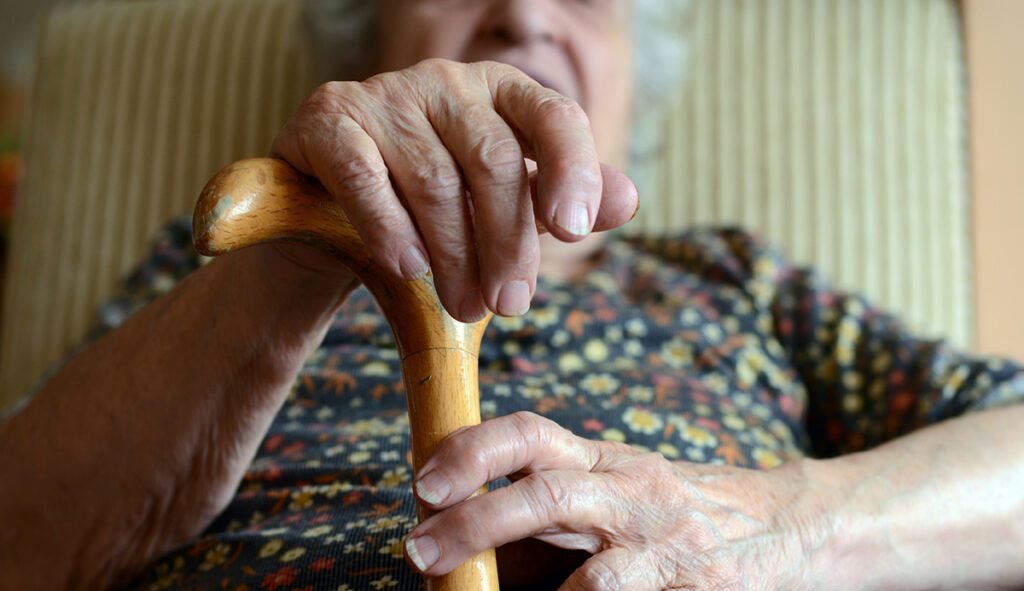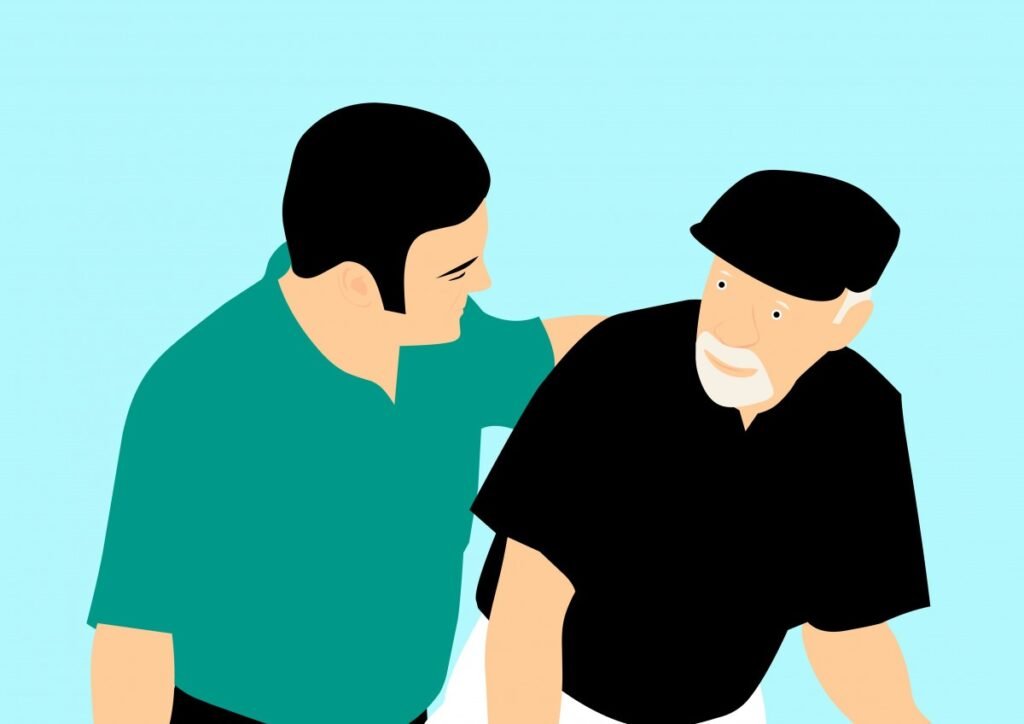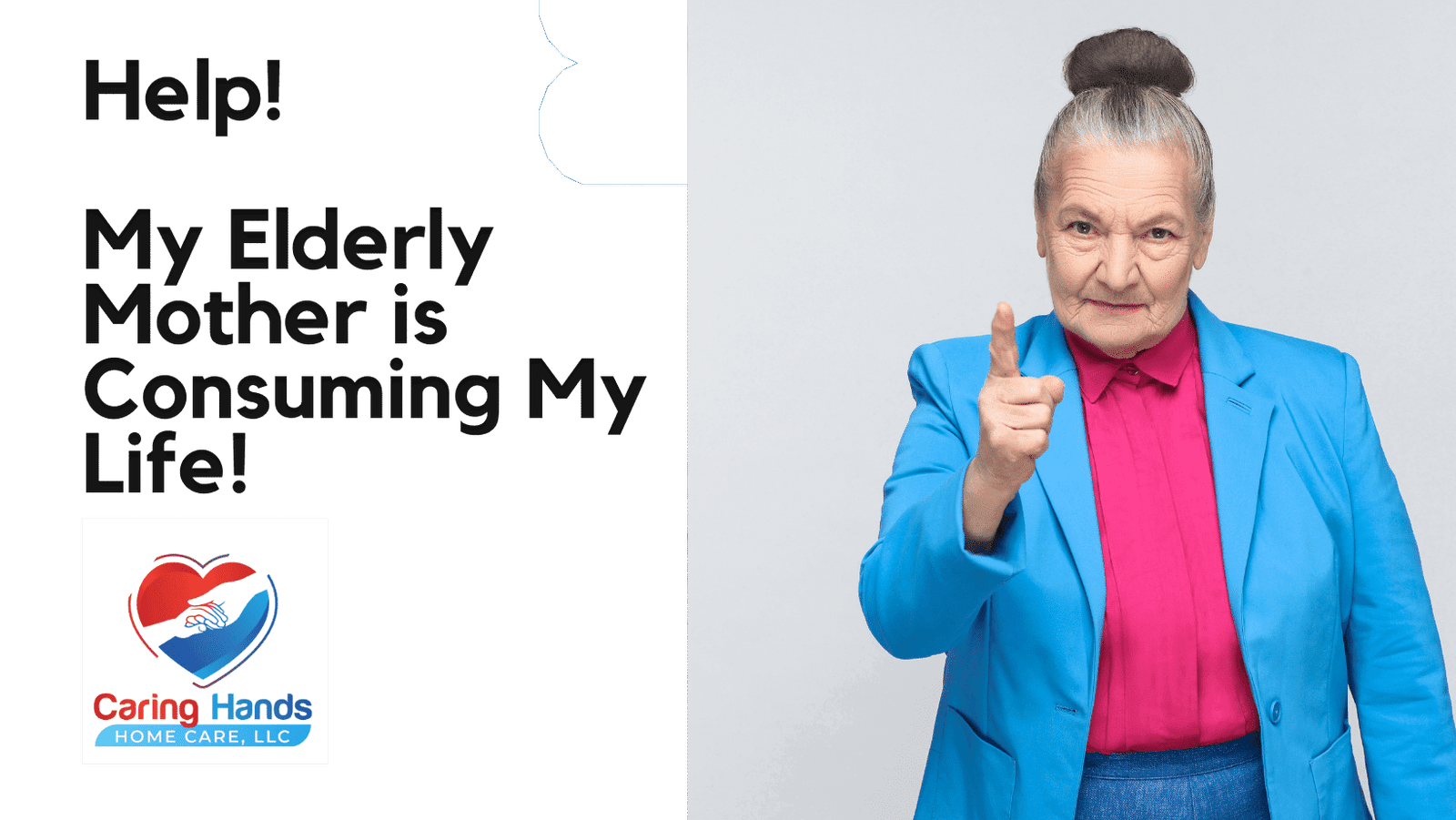My Elderly Mother Is Consuming My Life: How To Deal?
As a caregiver for an elderly parent, the journey is filled with love and compassion to treat your loved one with respect and care. However, it is not unusual for a caregiver to find the journey demanding and tough.
Caregiving is a difficult task to undertake that comes with lots of physical, emotional, and mental challenges. Caregivers may feel like their lives are being consumed with the demanding situation of constant caregiving. In such situations, it is necessary to find a suitable solution and address it accordingly to prevent burnout and leave no room for inadequate care for your elderly parent.
Check out Caring Hands Home Care, if you’re looking for caregivers to take care of your Elderly Mother!
Can Caregiving for an Elderly Parent Feel like Your Life is Being Consumed?
Yes, caregiving for an elderly parent may feel like your life is being consumed. As our parents grow old, they may gradually lose the ability to perform their daily life tasks with effectivity. They may also be more vulnerable to diseases, infection, and certain medical conditions.
Under such circumstances, we may feel like it is our responsibility to look after them just like they brought us up and provided for us. However, it is important to note that caregiving is a challenging situation that requires one to leave his personal commitments and look after the individual requiring help.
The responsibilities and demands of caregiving may get frustrating and overwhelming for the caregiver. This can lead to feelings of exhaustion, isolation, and even resentment. However, recognizing these challenges is the first step towards finding balance, setting boundaries, seeking support, and prioritizing one’s well-being with the increasing demands of caregiving.


How to Deal with the Overwhelming Situation of Caregiving?
With a multifaceted approach, caregivers can effectively deal with emotionally distressing situations of caregiving responsibilities. Here’s how to prevent burnout and save yourself from adverse feelings.
Acknowledge your Feelings
The first step towards an effective way to deal with an overwhelming caregiving situation is to validate and acknowledge your feelings and emotions. It is crucial to know that it’s okay to feel stressed, frustrated, or exhausted when caring for an elderly parent.
Set Boundaries
Set clear boundaries to protect your time, energy, and personal space. Communicate these boundaries clearly to the people involved in the caregiving process, leaving no room for ambiguity.
Seek Support
If you need help, call out for it. It is okay to ask for help and seek support. Share your feelings with people you trust and rely on. This can effectively help in reducing stress and effectively dealing with caregiving.
Explore Respite Care Options
Choose respite care services and give yourself a break from the demanding caregiving responsibilities. It can help prevent burnout and give caregivers a well-deserved break from the constant tough caregiving duties.
Prioritize Self-Care
Engage in activities that enhance your mental, emotional, and physical well-being. It is crucial to take some time out daily for oneself such as exercise, meditation, or hobbies one enjoys.
Delegate Tasks
Assign tasks to other willing family members or friends to prevent burnout. Try not to do everything on your own as it may greatly impact your physical and mental health over a prolonged period.
Seek Professional Guidance
It is essential to seek therapy or counseling if you feel like your mental health is being compromised. Professional support can provide you with coping strategies, stress management techniques, and a safe space to process your emotions.
Practice Mindfulness
Lastly, engage in mindfulness practices to help you stay focused on the positive aspects of caregiving. Even amidst challenges, there may be moments of joy and connection that can help you appreciate the bond you and your parents share.


Does Caregiving for an Elderly Parent Impact the Emotional Well-being of the Caregiver?
Yes, caregiving for an elderly parent can significantly impact the emotional well-being of an individual. It can be a frustrating and overwhelming task to undertake that may require compromising on one’s own physical and mental health.
Stress and Anxiety
Caregivers often encounter stress and anxiety due to high demands of constant caregiving. With a challenging situation of fulfilling the needs of an elderly parent along with one’s own responsibilities and commitments, it may become hard to balance between the two, resulting in stress and anxiety.
Guilt and Self-Doubt
Caregivers may also experience feelings of guilt and self-doubt when they find themselves unable to provide their elderly parents with the right level of care they require.
Moreover, the feeling of guilt may also stem from taking time for oneself, seeking outside help, or making difficult decisions regarding the parent’s care.
Grief
Witnessing a decline in parents’ physical and cognitive abilities is a difficult situation to cope with. Caregivers may experience grief and sadness which can be emotionally distressing for both the caregiver and care recipient.
Isolation
Caregiving responsibilities can be isolating, as caregivers may have limited time for socializing and maintaining relationships outside of caregiving. This social isolation can lead to feelings of loneliness and a lack of emotional support for the caregiver.
Depression and Burnout
Prolonged emotional and physical stress may lead to depression or burnout in caregivers. It may become exhausting for the caregiver to provide a high standard of assistance and support to their elderly parents.
Relationship Strain
Caregiving can have a strain on relationships within families, as different family members may have varying opinions on caregiving responsibilities, decision-making, and financial matters. Conflict and tension can arise, further impacting the emotional well-being of the caregiver.
Moreover, the caregiver may have a family of their own, which can consequently affect the relationship with their spouses and children.


Are there any Alternative Care Options?
Yes, emotionally and physically distressed individuals can always choose better care options for their loved ones where they can continue to get the utmost help and support they require. Some of the care options are given below
In-Home Care
Elderly parents can continue to get the assistance they require from professionals, that too in the comfort of their own homes. Caregivers can hire nurses and aides to provide their parents with professional assistance in activities of daily living, meal preparation, companionship, or medication management.
Adult Day Care
Adult daycare centers offer a day program for elderly individuals to engage in recreational or therapeutic activities, while their caregivers attend to their own needs and commitments.
These centers provide adults with a chance to socialize and engage in structured activities in a group setting.
Assisted Living Facilities
Assisted living facilities provide residential accommodations and support services for elderly individuals who require assistance with ADLs but do not require 24-hour supervision and medical care. Residents typically have access to meals, housekeeping, personal care assistance, and social activities within a community setting.
Nursing Homes
Nursing homes offer support and assistance for individuals with medical conditions or physical disabilities. These care centers often have easy and quick access to address the medical needs of the patients. They also provide assistance with ADLs, medication management, and rehabilitation therapy to ensure the well-being of the patient.
Respite Care
Respite care offers short-term and temporary relief to the caregivers by providing help and assistance to the individual who requires it.
The care recipient may receive in-home care or stay in a respite care center depending on the wish and preferences of the individual.
Hospice Care
Hospice care is focused on improving the quality of life of individuals with a terminal illness or with a prognosis of 6 months or less. These centers focus on managing pain and other negative symptoms, providing relief, and enhancing the quality of life of the patient.


How are Self-Care Practices Essential?
Self-care practices can improve the emotional, physical, and mental well-being of the caregiver, regardless of the caregiving responsibilities. It can help the caregiver in the following ways.
Prevention of Burnout
Caregiving can be an emotionally and physically challenging situation, which if not done right, can lead to caregiver burnout. Self-care practice helps reduce stress, increase energy levels, and enhance resilience, ultimately helping in the prevention of burnout.
Enhanced Physical Health
Caregivers can engage more in exercises, and meditation, and ensure good sleep quality. Maintaining a healthy lifestyle reduces the risk of chronic health conditions, boosts immunity, and increases energy levels, allowing caregivers to better meet the demands of caregiving.
Improved Emotional Health
Self-care practices also help promote the emotional health of the caregivers as they allow them to engage in activities they find rewarding. Moreover, socializing with friends and practicing mindfulness can also have a positive impact on the emotional well-being of caregivers.
Enhanced Resilience
Self-care fosters resilience, enabling caregivers to cope more effectively with the challenges and uncertainties of caregiving. By focusing more on their well-being, caregivers develop the emotional strength necessary for caregiving tasks.
Effective Caregiving
Caregivers who have their own emotional and physical health sorted out have a better chance of providing a high standard of care and support to their elderly parents.
What are the Responsibilities of Caring for an Elderly Parent?
Caring for an elderly parent usually consists of taking care of tasks that require emotional physical and mental strength. Some of them are given below.
Assistance with Daily Activities
Elderly parents may require help with activities of daily living such as bathing, eating, toileting, grooming, transferring, and dressing. A caregiver may need to assist with these tasks to ensure the well-being of the care recipient.
Healthcare Coordination
Managing the health condition of elderly parents, arranging medical appointments, and keeping a check on the health status of elderly parents may also require alertness and effort.
The caregiver may also have to consult with healthcare professionals to ensure the well-being of elderly parents.
Medication Management
Caregiving for an elderly parent also requires one to keep a close on their medication schedules. Ensuring medications are taken as prescribed, organizing pillboxes, and refilling medications may be a part of caring for an elderly parent.


Nutrition and Meal Preparation
Seniors may require a diet with nutritional benefits. Moreover, with certain health conditions, some foods may not be good for elderly individuals.
Caregivers may have to plan and prepare nutritious meals, and assist with feeding if necessary.
Mobility Support
Individuals may also have to assist their elderly parents with mobility. Through walkers and wheelchairs, mobility can be made easier, promoting a sense of independence in elderly individuals.
Household Tasks
Caregiving for an elderly parent may also require fulfilling household tasks such as cleaning, doing laundry, and maintaining a safe and comfortable environment, in order to ensure a peaceful surrounding for the elderly parent.
Emotional Support
Elderly parents may tend to experience negative feelings more. They may encounter stress, depression, or anxiety in their old age. Caregivers may have to provide elderly parents with emotional support and reassurance to help them combat isolation and loneliness, and ensure mental well-being.
Financial Management
A caregiver may also have to assist elderly parents with budgeting, paying bills, managing financial accounts, and overseeing financial decisions.
Safety Monitoring
To reduce risks of falls and injuries that may prove fatal in old age, caregivers may also have to ensure the safety of their elderly parents. Through installing automatic lights, grab bars, and other assistive devices, a safe and secure environment for elderly parents can be ensured.
Legal and End-of-Life Preferences
An elderly parent may also require assistance with legal matters such as advance directives, wills, powers of attorney, and discussing end-of-life preferences.
Can Informed Decisions be Made Regarding Care Options?
In making decisions about care options for elderly parents, it’s important to gather as much information as possible. Take the time to understand your parent’s needs and wishes, and involve them in the decision-making process as much as possible.
Talk to healthcare professionals for their insights and recommendations based on your parent’s health condition. Consider your parent’s financial situation and explore available resources.
Moreover, visit potential care facilities to analyze the environment and level of care provided. Seek recommendations from others who have been through similar experiences, and prioritize factors that contribute to your parent’s comfort and happiness.
Finally, make the decision together as a family, ensuring that everyone’s concerns and preferences are taken into account.


Conclusion
With an increase in age, the physical and cognitive abilities of our parents may seem to deteriorate. They may begin to rely on us more than ever. Under such circumstances, the probability of caregiver burnout, frustration, and exhaustion may be very high. It is essential to acknowledge how tough and demanding caregiving is and address the situation adequately by ensuring your and your elderly parents’ well-being. Prioritize yourself and look for alternative care options to provide your parents with professional care and support. With empathy and a collaborative approach, you can find the best care option for your loved one while also maintaining your emotional and physical well-being.
FAQs
How can I balance caring for my elderly mother with my responsibilities and commitments?
Through prioritizing tasks, delegating them if possible, and scheduling time for self-care, one can balance caring for their elderly mother with personal commitment and responsibilities.
How can I set boundaries with stubborn elderly parents?
Through effective communication, assertiveness, and empathy, one can set boundaries with difficult elderly parents.
How can I address feelings of guilt when I'm unable to meet all of my elderly mother's needs?
Addressing feelings of guilt involves recognizing your limitations, accepting that you're doing your best, and seeking support from others.
What are some practical tips for managing caregiver stress when caring for an elderly mother?
Managing caregiver stress can be achieved through practicing self-care activities or seeking support from friends or family in these tough times.
What signs may indicate that I might be experiencing burnout as a caregiver for my elderly mother?
Exhaustion, irritability, withdrawal from activities, neglecting your own needs, and difficulty concentrating or sleeping may indicate caregiver burnout.


![6 Activities of Daily Living & Need for Long-Term Care [UPDATED]](https://caringhandshomecarefl.com/blog/wp-content/uploads/2023/11/ADLs-and-IADLs-What-Are-They_-768x512.jpg)
![Things You Should Know About Respite Care [2024 Guide]](https://caringhandshomecarefl.com/blog/wp-content/uploads/2024/02/What-is-Respire-Care-768x429.jpg)
![Find Out If In-Home Care Tax Is Deductible [2023 Updated]](https://caringhandshomecarefl.com/blog/wp-content/uploads/2023/11/Is-In-Home-Care-Tax-Deductible-768x512.jpg)